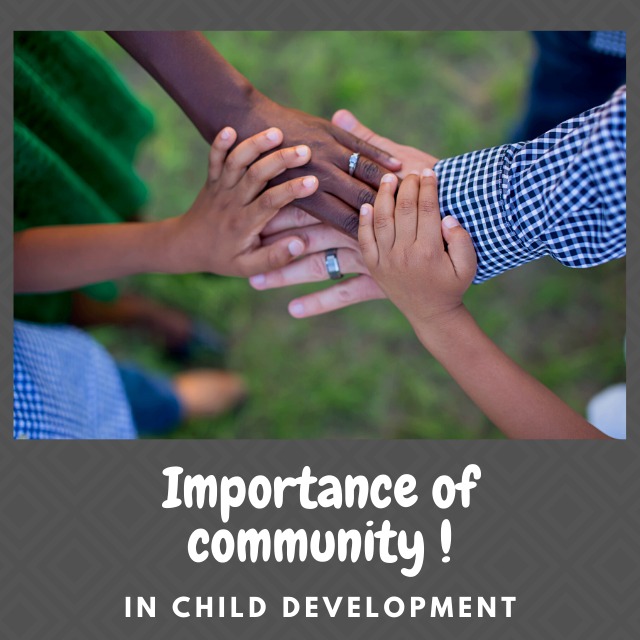I am blessed. For my supporting family, my lovely daughter and many other reasons, but most of all for the place we live in. It is a close knit community well connected within. Everyone knows everyone — their birthdays, anniversaries, food preferences and even their not so good habits. But the best part of living in such a place is that my daughter has the perfect atmosphere to grow up as a secure and strong person.
It is 2 pm as I write this, while my toddler is playing outside with her usual toys — dirt and pebbles. The reason I can type away calmly at the laptop is because she is not alone outside. She is joined in her play by her very best friend from across the road and the duo is being watched carefully by the other mother. I can leave them for an hour, guilt free, because that is the kind of kinsmen ship we have among each other. We look after each other. And our children.
That is one of the things which a community does. It provides a chance for adults to take an occasional much-needed break from raising their offspring. Meanwhile, their children are learning important social lessons like how to make friends, get along with other children and adults, and generally learn how to survive without their parents. Isn’t that marvelous? It is nothing new.
Since centuries men lived in big groups. They depended on each other for being alive and have a livelihood. But the ones to benefit most from it were the children. There were so many people to take care of them, talk to them, teach them and keep them safe. Today, the social structure of the society is quite different. Man lives in small families, and is always occupied in his pursuit of a successful life. His children however, get very limited access to other adults and children. Their contact with other adults and children is limited to school and their extended family, during vacations. This is no match to the constant and dependable presence of a neighborhood. But alas, not everyone is blessed like me to have a strong and supportive community, where a part of the child’s social, emotional and intellectual development is taken care of by people outside the family.
A community — whether it is neighborhood, colleagues staying together, colony, religious gatherings or extended family — plays a vital role in fostering feelings of belongingness in children. They have more people to depend on, and look for support when they are upset, in trouble or just need company. This is really helpful for their sense of worth, confidence and stability. There is enough research which shows that the more deep social relations a person has in his childhood, the more he would be assured and emotionally stable in life ahead.
Another thing which the child learns from a community is the fact that people are different. They dress, speak, eat and live differently. This varied spectrum of people helps imbibe tolerance in the child — a feature which is very important among citizens of this world. In the colony I live in, there are members from every state, religion and part of the country. My daughter observes the differences and asks a zillion questions, sometimes in public. No doubt I get embarrassed and frustrated trying to answer them all, but deep inside I know she is assimilating the difference, and learning how to look beyond these external facets of the people she meets. Also exposure to this kind of diversity opens up the child to a world of new experiences. Exposure combined with emotional stability and confidence would ensure that these children learn about the good and bad in the world and make the right choices when necessary.
So go ahead, call your neighbors over for dinner, set up play dates, and celebrate festivals together in your communities. Not only will your children learn how to make friends for life, you would gain some good companionship yourself.
























